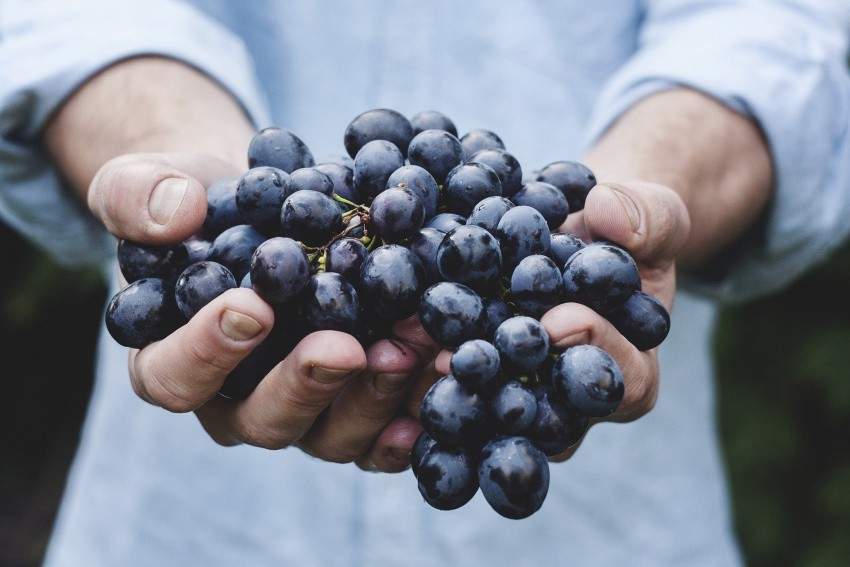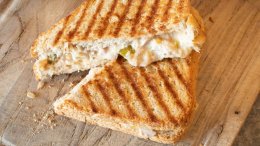There are lots of awesome things that happened in food news across Canada. Big wins for Newfoundland Distillery Co. as its seaweed gin wins double-gold, a microbrewery in Quebec created a truly international brew in honour of the G7 Summit, Manitoba provincial campgrounds is bringing the booze back for May long and some hopeful news regarding food banks and food donations.
These and more in Canadian food news from the past week.
Spirits are high at the Newfoundland Distillery Co.

The distillery's seaweed gin won a double-gold medal at the competition, while its cloudberry gin took home a silver medal. The double-gold winning seaweed gin, which launched at the end of June 2017, began as something of an experiment. The seaweed is sourced from the Grand Banks, deep in the ocean, and processed in a food-safe facility. Along with seaweed, the gin also uses juniper and savoury from the province. And the distillery's other gin is with its namesake local ingredient, cloudberries.
"It's a bit like if you have an oyster, you can taste a bit of the ocean," co-owner Peter Wilkins said.
This exciting news brings new products coming this summer including a rhubarb vodka and a gunpowder and rose rum. We cannot wait to see what else this distillery creates!
Read more about this distilleries glory story in this CBC article.
Campground liquor ban lifted just in time for May long weekend
For the first time in 23 years, the liquor ban in Manitoba provincial campgrounds for May long weekend has been lifted. The ban was introduced in 1995 after a number of incidents occurred during May long weekends.
Family-friendly liquor-free camping bays will remain available all season long at Birds Hill and Grand Beach parks.
But while you can drink, you may not be able to have a campfire this May long. As of Tuesday, fires were prohibited between 8 a.m. and 8 p.m.
Read s'more on this story in this Global News article.
A true international brew

Who says the world can't fit into a pint glass? The Microbrasserie Charlevoix, a microbrewery in Charlevoix, Quebec created a true international brew. With the 44th annual G7 summit taking place on June 8 and 9 in Charlevoix, the brewery wanted to brew something special for this event. They have blended ingredients from all seven member countries to create the La G7 Lager—with ingredients from Canada, the United States, the United Kingdom, Italy, France, Germany and Japan. Even its alcohol content reflects the summit. At seven per cent, La G7 is on the strong side.
Read more about in this CBC article.
WHO kicking trans fats to the curb
The world could eliminate industrially produced trans fats by 2023. The World Health Organization (WHO) unveiled a plan that said it would prevent 500,000 deaths per year from cardiovascular disease. Several countries have already eliminated trans fats by putting limits on the amounts allowed in packaged foods. Some have banned partially hydrogenated oils, the main source of industrially-produced trans fats. This is the approach Canada has taken; companies have until Sept. 15, 2018, to remove partially-hydrogenated oils from their foods.
Learn more about this health kick in this Global News story.
Ramadan fasting and food drives for fresh food

The Coalition of Muslim Women in Kitchener-Waterloo, Ont. is organizing its second annual food drive during Ramadan: the ninth month of the year in the Muslim calendar, during which fasting happens from sunrise to sunset. Fauzia Baig, the coordinator of the campaign, said the holiday marks a good opportunity to "understand the challenges of hunger that many people face."
Last year, the campaign raised $12,000. This year, Baig said she hopes to raise $15,000. The funds raised will be used toward constructing and providing equipment for the food processing room, so the food bank can handle more fresh foods for the community.
To read more or to donate check out this CBC article.
Canadian food crisis
Few people would associate Canada with hunger, but a new study has found that the country's food crisis is more severe than most people think. One in five Canadians have used a food bank in their life, the survey found, and more than 850,000 people use them each month. An online survey, which polled more than 1,500 Canadians, was commissioned by Catelli as part of its Feed the Hope campaign to help fight child hunger in Canada. Although nearly 20 per cent of participants said they knew someone who used a food bank, more than four in 10 Canadians didn't believe the country had a food crisis.
Learn more about this situation in this Huffington Post article.













